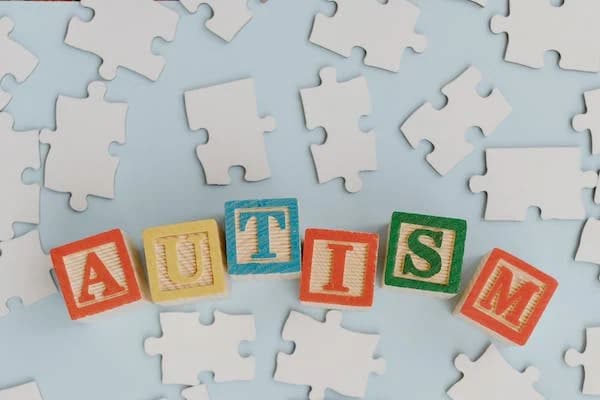If your child is diagnosed with ASD (autism spectrum disorder), you can consider alternative treatments for autism to get extra help for managing your child’s symptoms and improving his or her social skills, communication, and behavior.

This article discusses various alternative treatments for autism and the benefits associated with them. We will also have a look at the conventional treatments for autism and the use of stem cell therapy in the management of ASD.
Overview of Autism Spectrum Disorder and Its Challenges.
Autism spectrum disorder (ASD) is a term used to refer to neurodevelopmental conditions characterized by impairment in two primary areas, including social communication and repetitive or restrictive behaviors.
ASD is usually detected in children at the age of 2 to 3 years or earlier. The symptoms of this condition often persist lifelong and significantly interfere with the routine activities of the patient by causing difficulties in social behavior, communication, and learning new skills.
However, early diagnosis and treatment using complementary and alternative therapies for autism spectrum disorder might help children learn skills and adapt their behavior, allowing them to live a satisfactory life in adulthood.
Sensory Challenges in Individuals With Autism
Sensory hypersensitivity is a characteristic symptom that affects most autistic children. Some common symptoms of sensory hypersensitivity associated with autism include:
- Discomfort when exposed to bright lights or direct sunlight
- Covering their ears in response to even soft noises
- Sensitiveness to touch, resulting in a reluctance to wear shoes or brush teeth
- Desire to wear only loose-fitting clothes
- Eating only some foods with certain tastes or textures
- Complaining about smells such as perfumes and deodorants
- Oversensitivity to mild pain and injuries
Overview of Conventional Treatments for Autism
As of now, ASD is often approached with traditional treatments. However, current conventional treatments for autism mainly focus on reducing problematic behaviors and improving communication skills. They also include improving motor skills and managing sensory integration problems.
The treatment plan may include:
- Medication
- Cognitive behavior therapy
- Social skills training
- Sensory integration
- Speech-language therapy
- Applied behavioral analysis
- Parent education and training
The symptoms of autism and their severity vary among different children. Hence, both the holistic treatment for autism and the traditional one need to be customized based on the specific symptoms of the child and his specific needs, preferences, and constraints.
Get a free online consultation
Contact us to learn more about our stem cell therapy options, what are the possible outcomes, and whether you could benefit from the procedure.

Medical Advisor, Swiss Medica doctor
The Definition and Principles of Holistic Medicine
Holistic medicine encompasses alternative therapies for autism that are characterized by non-conventional practices instead of conventional modern treatments. It is an approach that aims to treat the whole person, rather than just the symptoms of a condition.
Holistic medicine is based on the concept of identifying and eliminating or tackling the root cause of the illness in order to bring about a comprehensive improvement in the patient’s overall well-being.
Some key principles of holistic alternative treatments for autism include:
- Addressing the underlying causes of autism, rather than just managing symptoms.
- Improving the patient’s overall well-being and quality of life. This includes physical, mental, emotional, and social aspects.
- Using alternative practices like herbal medicine, acupuncture, massage, and mind-body techniques.
- Tailoring treatments to each patient’s unique needs, symptoms, and circumstances, rather than a one-size-fits-all approach.
Potential Benefits of a Holistic Approach for Individuals With Autism
A holistic approach that includes alternative treatments for autism can provide several potential benefits, including:
- A wider scope of improvement in patients’ social and communication skills
- Improvement in nutrition patterns
- Better physical health
- Stable emotional state
- Relief from autism symptoms such as repetitive or restrictive behaviors
- Reduced frequency and intensity of emotional outbursts or aggressive behaviors
- Improvement in cognitive functions such as memory, attention span, and focus
- Increase in the ability to learn skills needed to live a financially independent life
- Improved quality of life
Alternative Therapies Tailored for Autism
Alternative medicine for autism emphasizes making appropriate changes in diet and lifestyle in combination with other therapies, such as:
- Occupational therapy
- Physical therapy
- Yoga
- Meditation
- Ayurveda
- Acupuncture or acupressure
The effectiveness of these alternative treatments for autism depends on the specific symptoms of the child. Combining holistic medicine for autism with modern treatments can bring better results. It increases the likelihood of the child leading a healthy, physically and socially active, emotionally stable, and independent life.
Why Alternative Treatments for ASD Might Be Appealing for Some Families
Alternative treatments for autism might be appealing for some families, as they have a wider scope of addressing the health issues commonly associated with ASD, including:
- Deficiency of nutrients
- Weak digestion
- Poor physical, emotional, and cognitive development
- Frequent infections due to the inability to follow hygienic practices
- Sleep problems associated with behavioral and psychological changes that cause anxiety, aggression, and restlessness
- Unsatisfactory performance in academics
- Self-harming behaviors
Alternative therapies, such as eating a healthy diet, regular exercise, physical therapy, yoga, and meditation, can address these concerns associated with autism, thus improving the outcomes to a great extent.
This is why most families prefer to combine conventional treatments with complementary and alternative medicine for autism to increase the chances that the child can live a healthier and more productive life.
Stem Cell Treatment for Autism
The latest advancements in stem cell treatments are expected to improve the prognosis of autism in some cases.
Supporters of stem cell treatment for autism believe that it can help reduce the symptoms of ASD and improve the social skills, communication, behavior, and speech of the patient. Stem cell therapy works by lowering inflammation and improving the way the immune system works, as well as increasing the flow of blood to the brain and organs. This is expected to help reduce the symptoms of autism associated with inflammation and disruptions in the immune system.
However, the ongoing research is expected to provide better insights into whether stem cell therapy can be included in the treatment plan for autism to help improve the outcomes.
The Role of Nutrition in Autism
Nutrition plays a key role in relieving the symptoms of autism, especially those associated with physical development, the risk of infections, weak immunity, and poor cognitive performance.
Nutrients that play a role in improving the outcomes of autism treatments include:
- Vitamin D
- Vitamin B-6
- Vitamin B-12
- Vitamin C
- Magnesium
- Melatonin
- Omega-3 fatty acids
- N-acetyl cysteine (NAC)
- Probiotics
- Digestive Enzymes
Examination of Practices Like Yoga and Meditation for Managing Autism Symptoms
Clinical research has revealed that yoga and meditation might significantly improve the symptoms of autism.

These alternative treatments of autism are believed to offer multiple benefits, such as:
- Increased physical strength, coordination, balance, and flexibility
- Improvement in social-emotional skills
- Increase in the ability to learn language and communication skills
- Improvement in self-regulation and body awareness
- Enhanced cognitive skills such as memory attention span and focus
- Relief from anxiety, aggressiveness, and restlessness
- Lower risk of self-harming behaviors
- Improvement in academic performance
- Relief from impulsive obsessive, repetitive, and restrictive behaviors
Importance of Involving the Entire Family in Holistic Approaches
Holistic approaches and alternative treatments for autism should preferably involve the entire family, as having a child with autism often affects the routine life of parents and siblings.
Involving the family in holistic approaches can help address issues related to the emotional and physical wellness of the parents, siblings, and other family members. It can also allow household members to learn to manage the symptoms, monitor the progress of the child, and make appropriate changes to improve the results with the use of both conventional treatments and natural medicine for autism.
Contact us
Get a free online consultation to learn about the expected results of stem cell therapy for your case, what is the cost of the treatment, and its duration.
List of References:
Nadeem, M. S., Murtaza, B. N., Al-Ghamdi, M. A., Ali, A., Zamzami, M. A., Khan, J. A., Ahmad, A., Rehman, M. U., & Kazmi, I. (2021). Autism – A Comprehensive Array of Prominent Signs and Symptoms. Current pharmaceutical design, 27(11), 1418–1433. https://doi.org/10.2174/1381612827666210120095829
Hirota, T., & King, B. H. (2023). Autism Spectrum Disorder: A Review. JAMA, 329(2), 157–168. https://doi.org/10.1001/jama.2022.23661
DeFilippis, M., & Wagner, K. D. (2016). Treatment of Autism Spectrum Disorder in Children and Adolescents. Psychopharmacology bulletin, 46(2), 18–41.
Karhu, E., Zukerman, R., Eshraghi, R. S., Mittal, J., Deth, R. C., Castejon, A. M., Trivedi, M., Mittal, R., & Eshraghi, A. A. (2020). Nutritional interventions for autism spectrum disorder. Nutrition reviews, 78(7), 515–531. https://doi.org/10.1093/nutrit/nuz092
Shanker, S., & Pradhan, B. (2022). Effect of yoga on children with autism spectrum disorder in special schools. Industrial psychiatry journal, 31(2), 367–369. https://doi.org/10.4103/ipj.ipj_212_21
Medical Advisor, Swiss Medica doctor






